10 Tips for Simplifying Your Financial Affairs While Living Overseas
By Chad Creveling, CFA and Peggy Creveling, CFA
Living overseas can be filled with adventure, but it can also add complexity to your financial affairs. Even if you’re assisted by your company’s HR department, the complexity can make day-to-day management and long-term financial planning a time-consuming and overwhelming burden.
Below are tips to help simplify the management of your finances, save time, and remove stress so that you can focus on the more enjoyable aspects of expat life.
- Limit the Number of Financial Accounts. Many expats collect bank, investment, and credit card accounts as they move from country to country, as well as maintain accounts in their home country. You should be able to get by with a global brokerage account (or a U.S. brokerage account for Americans) to hold your investments and a premier account at one of the international banks serving the offshore marketplace to meet your commercial banking needs. If you maintain property in your home country or a third country, you may also need to hold an account in that country to collect income and pay expenses.
- Get a Local Payment Card (Credit, Debit or Other). Having some form of making payments in your local currency makes sense in order to avoid foreign exchange charges and international transaction fees. If you earn a local-currency salary and can maintain the discipline of paying off your balance each month, then having access to a local-currency credit card can make sense. Alternatively, having a local payment or debit card linked to a local currency bank account can also work.
- Get an Online Brokerage Account. Use an online brokerage to hold your investments, allowing you to manage your investments at one account. Look for a broker that will provide you with a greater range of investment products at a significantly cheaper cost than your commercial bank or the insurance-linked savings/investment schemes heavily marketed offshore. For Americans, the best bet will be a U.S.-based discount broker to avoid the tax complications of holding non-U.S.-domiciled investment products. For non-Americans, look for a global discount broker in an offshore jurisdiction that does not tax nonresidents.
- Maintain Joint Accounts. For couples, generally, both spouses should have access to the main household financial accounts to ease financial management and to handle emergencies. To preserve a degree of financial independence and marital bliss, each spouse could also maintain an individual bank account for discretionary spending. If main accounts must be individually owned, consider giving your spouse a power of attorney over your account in the event of an emergency.
- Download and Save Account Statements. Elect to have account statements delivered online when possible. This avoids wasted paper, makes changing addresses easier, and helps avoid late bills and missed payments due to mail delays. Remember to download and securely maintain recent copies for record-keeping and legal documentation.
- Use Online Bill Pay. If your bank or broker allows it, use the bill pay feature to automate recurring payments. This helps you avoid making late payments and makes it easier to stay on top of your bills.
- Use a Multicurrency Personal Financial Software Program. Use a multicurrency financial software program such as Quicken to track your finances. This allows you to maintain all your assets and liabilities in one place. Using the software to track your spending can also help you develop a financial plan and stay on course. Account values and asset prices can be set up to be automatically updated online. If you are new to it, consider taking an online Quicken course.
- Organize and Securely Store Your Financial Records. Photocopy your key records, and store the originals in a fireproof safe at home or in a safe deposit box. Additionally, consider scanning your documents and maintaining them on a portable drive encrypted with a program such as BitLocker. Another option is to store them online with an encrypted commercial document storage service, which would give you access to your documents from anywhere in the world.
- Keep a Photo Inventory of Your Belongings. Use your digital camera to make a record of all your personal belongings. This record can be used for insurance purposes or when moving. You can store your photo inventory on your home computer and keep a copy on your encrypted portable drive along with your other key documents.
- Use Communications Software. By now, most expats are familiar with the various types of internet-based communications programs available, such as MS Teams, Cisco Webex, Zoom, etc. Any of these can be used to communicate cheaply to keep up with advisors, property managers, friends, and family – as long as both parties use the selected program. If you need to place a call to someone who doesn’t use these types of programs, using the Skype call-to-phone option can be a cost-effective alternative.
This article is a revised and updated version of an article that originally appeared on www.crevelingandcreveling.com.
Additional Resources
5 Questions Expats Should Ask Before Choosing an Offshore Custodian
Protect Your Investment Portfolio from Fraud and Bankruptcy
About Creveling & Creveling Private Wealth Advisory
Creveling & Creveling is a private wealth advisory firm specializing in helping expatriates living in Thailand and throughout Southeast Asia build and preserve their wealth. The firm is a Registered Investment Adviser with the U.S. SEC and is licensed and regulated by the Thai SEC. Through a unique, integrated consulting approach, Creveling & Creveling is dedicated to helping clients cut through the financial intricacies of expat life, make better decisions with their money, and take the steps necessary to provide a more secure future.
Copyright © 2023 Creveling & Creveling Private Wealth Advisory, All rights reserved. The articles and writings are not recommendations or solicitations, and guest articles express the opinion of the author; which may or may not reflect the views of Creveling & Creveling.

